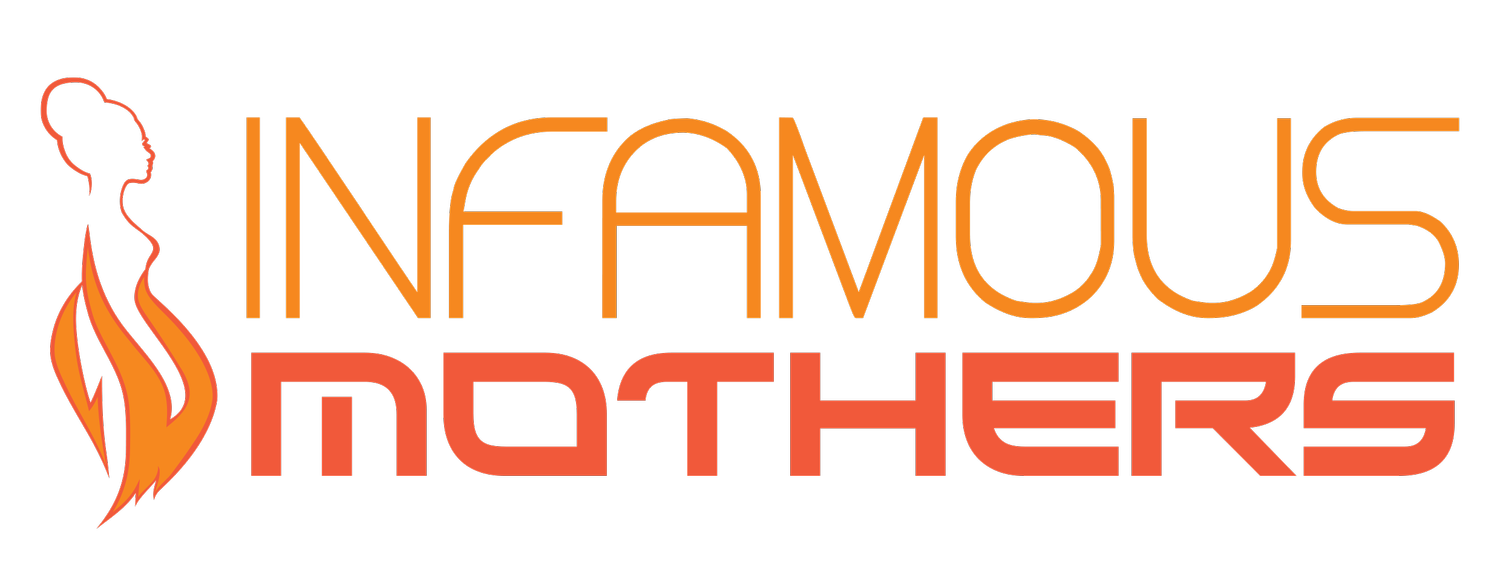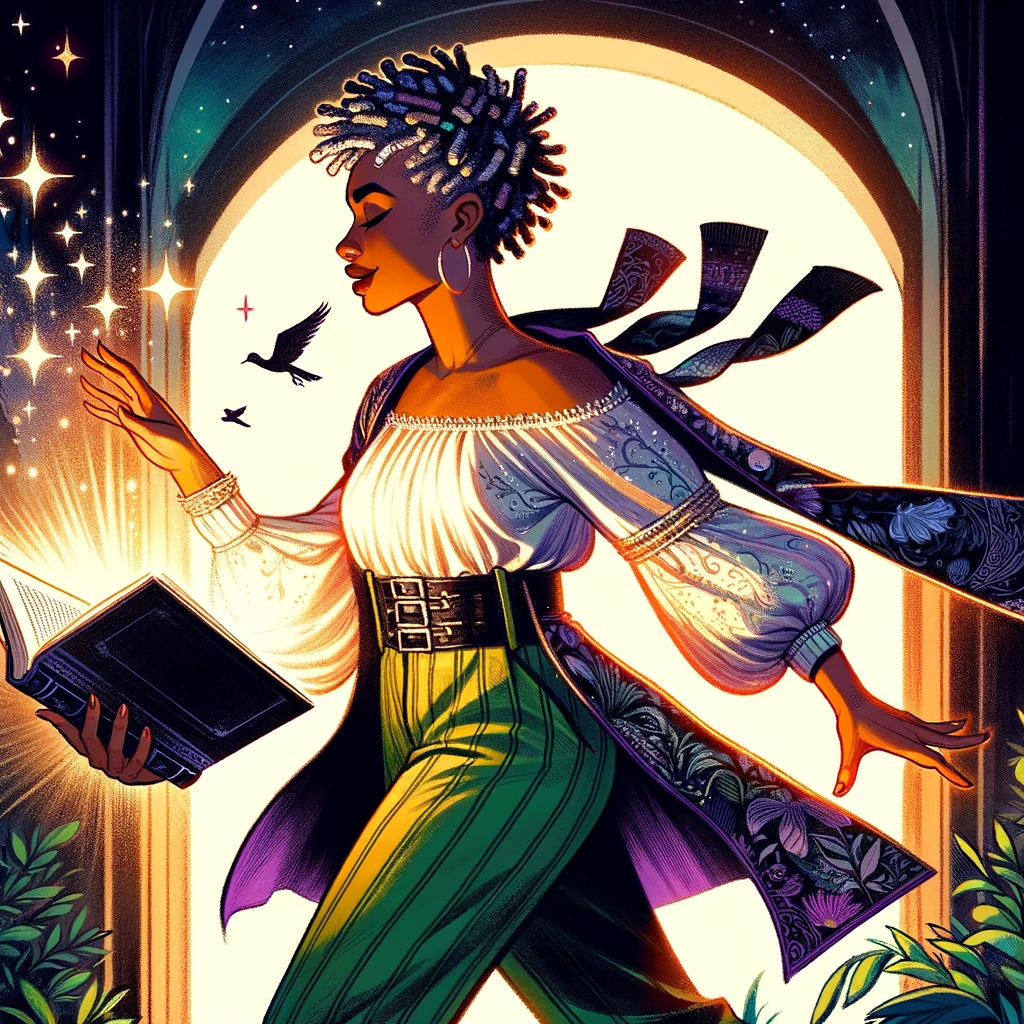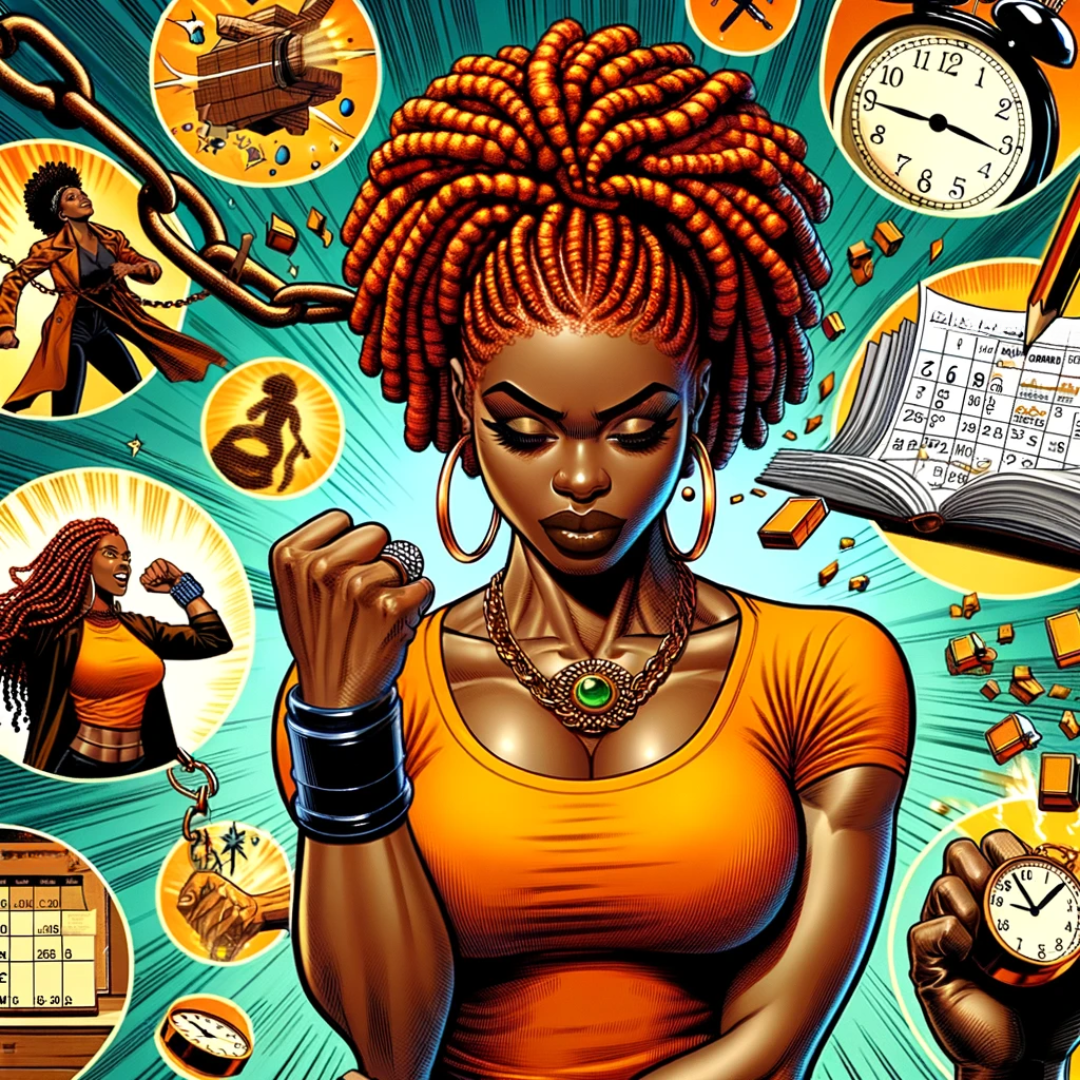From Pages to Practice: The Stories and Legacies of Badass Moms
Fictional Stories and Real-life lessons
Introduction
One of the biggest messages professors of English often stress is this: When analyzing literature, do not draw real-life conclusions. The analysis should always be confined to the text and the world that the characters inhabit. And yet, this blog post is all about drawing the lessons we can take away from fiction and sci-fi/fantasy. It’s about the lessons we can get from nonfiction.
Obviously, in the case of fiction and fantasy, they're imaginative spaces, crafted to explore what it means to be human. So, there's a bit of a tightrope to walk when drawing real-life insights from tales spun from worlds, towns, cities, and states that are fake. And yet, the key to making fiction work is that it has to resonate and speak to real life. It has to echo our experiences and challenges. This blog is about navigating that space thoughtfully, knowing well the risks but also the rewards of seeking truth and lessons in fiction.
I don’t know about you, but I didn’t come into motherhood the “right way.” I showed up out of wedlock, broken down, unsure, traumatized, and scarred. For women like me, the conventional examples offer neither redemption nor road maps for transitioning from how I began to the highest possibility of what I could be. But literature does.
Welcome to the grand finale of our series, merging Women's History with National Reading Month. Throughout this journey, we've celebrated the stories of mothers and caregivers across different times and literary genres. (If you missed our earlier installments, be sure to catch up on "100+ Books for HERstory," "The Feminism You Didn’t Know You Needed," and "The Power of Autobiography: Sis, Your Story Is Valuable, Tell It"). Today, we're tying it all together and delving into how these stories impact us as mothers in real life.
From Pages to Reality
Mothers in Literature Redefining Mothering in Life
In exploring the enduring legacy and pivotal roles shown in works by and about Black women, we dive into narratives that stretch beyond mere storytelling to redefine the essence of motherhood, resilience, and identity. These works serve as a cornerstone for understanding the complex and diverse experiences of Black women through various lenses—be it through Celie's transformative journey in Alice Walker's "The Color Purple." It navigates through the harsh realities of the Jim Crow South to find strength and empowerment. Or it’s through the hauntingly beautiful exploration of the kind of extreme sacrifices mothers make under duress, as shown in Toni Morrison's "Beloved." Michelle Obama's "Becoming" reflects on balancing motherhood with the demands of being the First Lady, offering insights into the complexities of public life and personal growth.
Nalo Hopkinson's "Brown Girl in the Ring" introduces a speculative realm where ancestral wisdom and futuristic challenges collide, offering a fresh perspective on generational bonds and survival. Morrison's "Sula" returns us to the intricacies of female relationships and societal roles, urging a reevaluation of conventional narratives around mothering. Jacqueline Woodson's "Red at the Bone" unfolds the story of a family across generations, highlighting the transformative power of motherhood and the legacies we inherit and bestow.
Beyond Conventional Motherhood
These stories celebrate Black women authors and explore motherhood in all its complexity. They challenge stereotypes about mothers, showing them as strong figures with diverse experiences. They highlight teen moms, survivors of abuse, and mothers facing tough decisions, portraying them as heroes. They also make us rethink traditional ideas about right and wrong, showing how some mothers defy expectations.
These narratives make us think about the difficult situations Black women and women in general often find themselves in. They make us question how society treats them and who the real heroes and villains are in their lives. Through these stories, we learn from the struggles and triumphs of the characters, as well as real women who share similar experiences.
Overall, these stories deepen our understanding of motherhood in all its challenges and joys. They show us that being a mother is complex and diverse, and they offer new perspectives and lessons for navigating the real world.
Redefining the mothering experience
The Legacy of Infamous Mothers in Literature
The characters we're discussing break traditional ideas about motherhood in their own times and circumstances. They show us different ways of being a mother, expanding our understanding of what it means. This is especially important for women who have felt limited by society's views on motherhood, giving them new perspectives and freedoms. These characters also teach us about resilience and redemption, showing that motherhood can be redefined and reclaimed, even in difficult situations.
Here are some examples:
Najiba from "Who Fears Death" by Nnedi Okorafor: Najiba shows the lasting influence mothers have on their children, even in troubled times. And she is an example of how what it looks like to mother a child born from violence, a child that represents disgrace. Mothering on her own terms, she guides her daughter through difficult times, offering a new perspective on motherhood's role in shaping the future.
Mawu from "Wench" by Dolen Perkins-Valdez: Mawu represents the bravery of enslaved mothers fighting for their freedom and their children's future. Her story adds to our understanding of the struggles enslaved mothers faced, showing how important motherhood was in the fight for freedom.
"The Color Purple" by Alice Walker: Celie's journey from victim to empowered woman shows that mothering is about more than biology. It’s about nurturing the little girl within so that the woman can be born. The book challenges ideas about gender, race, and motherhood, encouraging us to rethink traditional roles.
"Beloved" by Toni Morrison: This book explores the lasting effects of slavery on motherly love and family ties. By making us confront the impossible sacrifices mothers made under the evils of slavery, “Beloved” invites us to explore the impossible choices mothers are still making under unjust and cruel systems today. It also invites us to look at how these systems impact mother-child relationships.
"Becoming" by Michelle Obama: Michelle Obama's memoir shows how she balanced motherhood with her personal and professional goals. Her story inspires women, showing that being a mother doesn't mean giving up on your dreams.
"Brown Girl in the Ring" by Nalo Hopkinson: This book mixes Caribbean folklore with speculative fiction, showing how mothers preserve culture and community in tough times. It’s an invitation to explore what it looks like when generations of mothers forfeit their callings and purposes due to oppression and abuse and the impact that unfulfilled mandate has on the next generation. Also, it offers us a new kind of hero: a breastfeeding teen mom, challenging respectability’s ideas of who can save the day and who needs to be saved.
"Sula" by Toni Morrison: Morrison's book looks at friendships and mother-daughter relationships in a segregated community, making us think about societal pressures on motherhood. It’s an exploration sexual boundaries, other mothering, sacrifice and loss. In other words, it covers the taboos, messiness and “hard stuff” around mothering that we often keep quiet about.
"Red at the Bone" by Jacqueline Woodson: This book explores motherhood across generations, showing how maternal legacies shape identity and family dynamics.
Together, these stories challenge and celebrate motherhood, showing its complexity and importance in our lives. They encourage us to keep talking about the challenges and joys of being a mother, and how it shapes who we are as individuals and as a society. More than this, they affirm, highlight and offer real-life takeaways for so many of the experiences we have been shamed into hiding as caretakers of young lives.
Superhero mom balancing all the roles of mothering
Thematic Resonance and Societal Impact
These stories go beyond just being stories; they place on the world’s stage the things we often refuse to say out loud about the motherhood experience. The encourage us to keep going, and they invite us to own our identities as mothers in new ways. They show mothering in all its complexity, challenging what we usually hear. This connection across different stories shows how powerful storytelling is in revealing truths about being a mother. During Women's HERstory Month, we recognize not just the individual stories but also how they shape how we think about motherhood in society, making it easier for us to move from struggles to empowered parenting.
Setting Goals and Gaining Freedom
Bringing the Literary to Life: Practical Tips and Applications
Drawing inspiration from the literary works discussed, here are some practical empowerment tips and exercises you can incorporate into your daily life to navigate the complex journey of motherhood and personal growth:
1. Drawing from "Beloved" by Toni Morrison:
- Healing from Past Traumas: Start a journal of release. Each day, write down one thing from your past that haunts you or you wish to let go of. This could be fears, regrets, or traumas. Conclude each entry with an affirmation of release and healing, symbolizing your journey towards liberating yourself and creating a positive environment for your children.
2. Inspired by "The Color Purple" by Alice Walker:
- Finding Your Voice and Strength: Engage in daily affirmations of strength. Reflect on Celie’s journey and remind yourself of your worth and resilience. You might say, "I possess the strength to overcome my challenges," or "My voice is powerful and my story matters." This can reinforce self-esteem and empower you to advocate for yourself and others.
3. Drawing from "Who Fears Death" by Nnedi Okorafor:
- Shaping Destinies: Create a vision board with your child or for yourself, focusing on aspirations and dreams. Use images and words to represent your goals and the values you wish to pass on. This exercise can serve as a reminder of the powerful influence mothers have in shaping their children’s futures and their own.
4. Inspired by "Wench" by Dolen Perkins-Valdez:
- Fighting for Autonomy and a Better Future: Set weekly goals that align with your aspirations for freedom, whether personal, professional, or familial. Reflect on Mawu's determination and channel that energy into actionable steps toward your goals, demonstrating to yourself and your children the importance of striving for a better future.
5. Drawing from "Sula" by Toni Morrison:
- Exploring Female Friendships and Community Support: Initiate a monthly book club or support group with other mothers. Discuss books, share experiences, and offer support. Through these gatherings, nurture a community that reflects the support and complexities found in female friendships, as portrayed in "Sula".
6. Inspired by "Red at the Bone" by Jacqueline Woodson:
- Understanding Intergenerational Bonds: With your family, start an oral history project. Share stories from your life, listen to tales from older generations, and encourage children to share their experiences. This exercise can deepen connections, offering insights into the enduring power of family legacies and the bonds that tie us together.
Each of these exercises draws on the themes of resilience, identity, and transformation found in the highlighted literary works, offering pathways to empowerment and deeper connection within the journey of motherhood.
Book Club for Mothers
Conclusion: A Journey of Continuous Learning and Growth
When we reflect on the stories of famous mothers in literature, we uncover their immense impact on culture and society. These characters embody strength, resilience, and transformation, resonating with countless women and offering solace, inspiration, and understanding. Equally important, these stories offer us lessons, takeaways, and representations of motherhood that traditional models have yet to provide or normalize. Women's HERstory Month amplifies these stories, recognizing the power of reading, owning, and sharing our narratives. Through storytelling, we connect with our history, navigate the present, and inspire future generations.
Engaging with Readers
We invite you to share the stories of maternal figures in literature that have touched you, challenged you, or changed your perspective on motherhood. How have these narratives influenced your understanding of womanhood, resilience, or identity? Let's continue to celebrate and explore the richness of women's stories, acknowledging their profound impact on our lives and society. Your insights and reflections contribute to the ongoing dialogue, enriching our collective appreciation of the diverse experiences of motherhood captured in literature.
P.S. — It’s Covet Season
In the Infamous Mothers Universe (IMverse), we're fully immersed in the transformative Covet season. This is the phase where extraordinary women in our world wholeheartedly dedicate themselves to becoming the versions of themselves that once seemed out of reach. During this season, women are achieving their health and wellness goals, increasing their bottom lines, and accomplishing things that were once deemed 'impossible'. Our mission is crystal clear: we exist to inspire, motivate, and educate you as you relentlessly pursue the very dreams you've longed for.
If you want to join us in Covet season, are ready to delve deeper into the enriching content of this series, we have more FREE content to offer:
Subscribe to our blog: Gain access to valuable content that can spark your personal transformation (complete the Weekly Wench form below).
Join our Wanted newsletter: Stay in the loop with the latest resources.
Join our growing Instagram community to connect with kindred spirits. We're here to empower you throughout Covet Season, guiding you to turn your dreams into a vibrant reality.
Photo Credit: Chris Charles
ABOUT THE BLOGGER
Dr. Sagashus Levingston is an author, entrepreneur and PhD holder. She has two fur babies, Maya and Gracie, six children (three boys and three girls), and they all (including her partner) live in Madison, WI. She loves all things business, is committed to reminding moms of their power, and is dedicated to playing her part in closing the wealth gap for people of color and women. She believes that mothering is a practice, like yoga, and she fights daily to manage her chocolate intake. The struggle is real, y’all…and sometimes it’s beautiful.
Follow her on Instagram: @infamous.mothers







